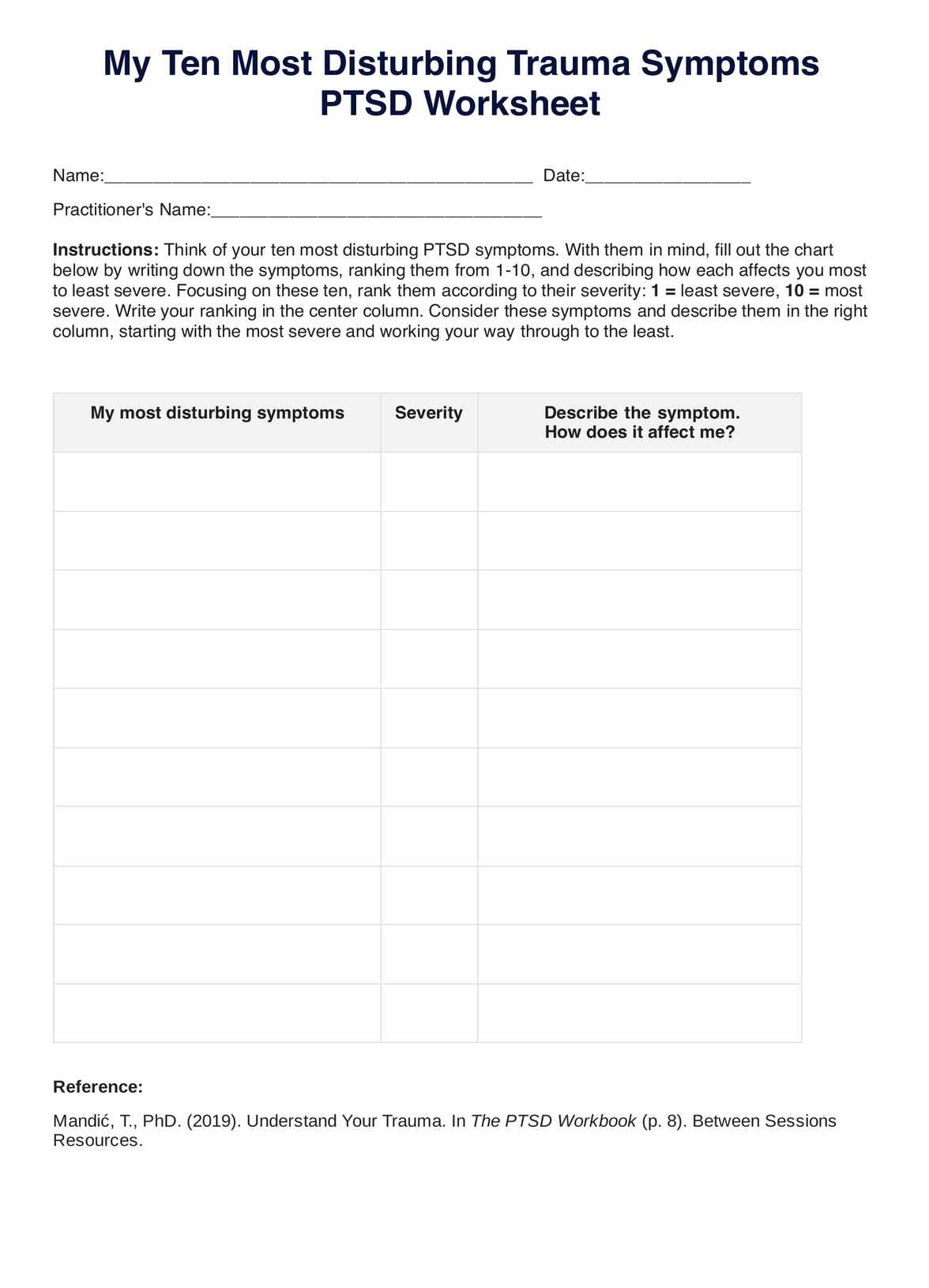It can take at least an hour to accomplish the “My Ten Most Disturbing Trauma Symptoms PTSD Worksheet” and even shorter if they’ve listed all their symptoms before.

My Ten Most Disturbing Trauma Symptoms PTSD Worksheet
Aid your clients in determining which PTSD symptoms affect them the most with the My Ten Most Disturbing Trauma Symptoms PTSD Worksheet. Click here to learn more.
Use Template
My Ten Most Disturbing Trauma Symptoms PTSD Worksheet Template
Commonly asked questions
The “My Ten Most Disturbing Trauma Symptoms PTSD Worksheet” can help a person, specifically the referring physician, know more about their client and determine how to go about their treatment plan with the symptom’s severity in mind.
The “My Ten Most Disturbing Trauma Symptoms PTSD Worksheet” is best used after the client has listed down all of their PTSD symptom or before a treatment plan has been formulated.
EHR and practice management software
Get started for free
*No credit card required
Free
$0/usd
Unlimited clients
Telehealth
1GB of storage
Client portal text
Automated billing and online payments











